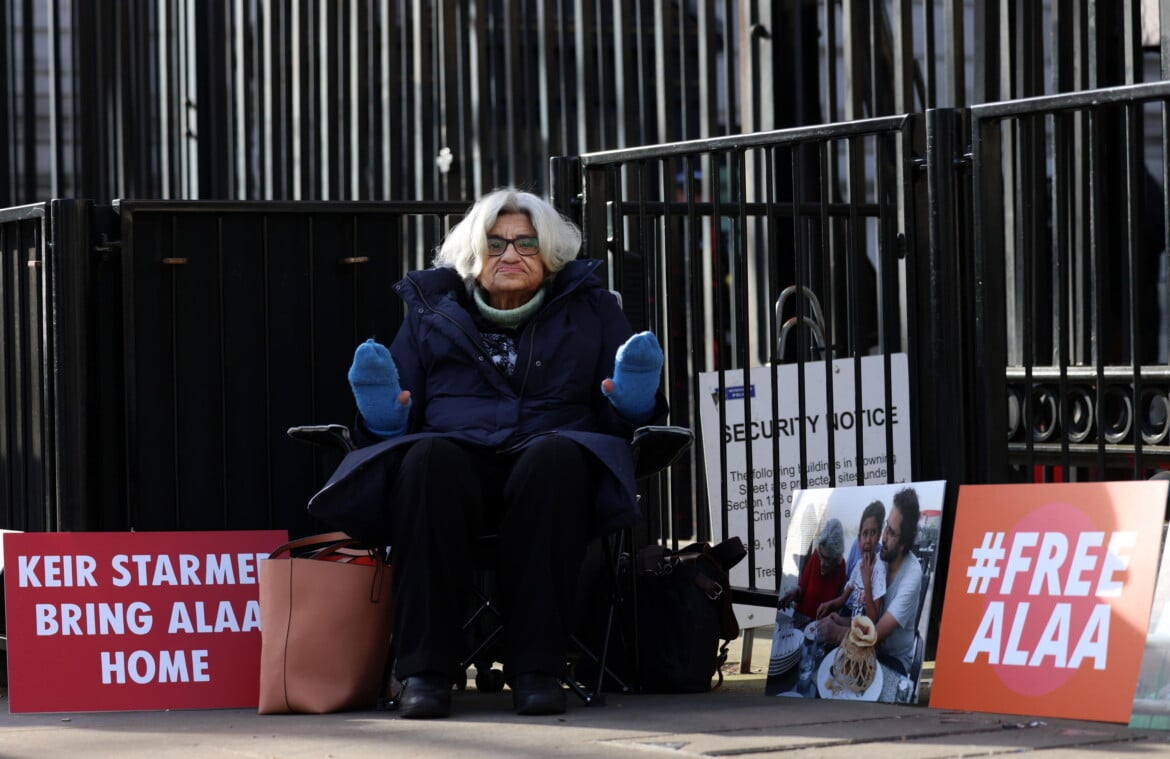Commentary
Laila Soueif, a mother of Tahrir Square
From Argentina to Egypt, history repeats itself. Mothers fighting for their children often find themselves fighting lonely battles against repressive systems, sacrificing their lives in the hope of obtaining justice. Today, Laila Soueif is one such mother.

Professor Laila Soueif, a professor of mathematics at Cairo University, is best known for her political and militant activism, but she also boasts an academic career full of significant contributions to the field of mathematics, something that is often overlooked. Her name is closely linked to civil resistance and the struggle for human rights in Egypt, but at the same time she has been a guiding light for generations of students who have benefited from her expertise in her field.
I can clearly recall the day I discovered her academic side: during a meeting at the university in which the post-revolutionary political situation in Egypt was being discussed, some students came up to her not to talk about politics but to ask her for help with complex equations. That episode led me to reflect on how extraordinary her example was: a woman who was able to combine intellectual engagement and political militancy, becoming a leader not only in the struggle for justice but also in research.
Now, for 153 days, the world has followed her total hunger strike with growing anxiety, an act of extreme resistance attempted by this 68-year-old woman to save her son, Alaa Abdel Fattah, unjustly imprisoned by the Egyptian regime. Only on March 4, because of the worsening of her physical condition – but also, as she pointed out, due to the hope that the many messages of solidarity received have given her – she agreed to switch from the total hunger strike to a partial hunger strike.
Alaa is not just a political prisoner: he is one of the symbols of Egypt's 2011 Tahrir Square Revolution, an activist who fought for a free and democratic Egypt. His voice has always been a thorn in the side of the regime, which is why he has been arrested several times over the past 11 years. His most recent five-year prison sentence was for allegedly spreading “fake news,” a charge commonly used in Egypt to silence political opponents. Despite having served his sentence, the authorities decided to extend his detention without any legal basis, as a clear sign of their intention to stifle all dissent.
The pain of a mother fighting for her son's freedom knows no geographic or temporal boundaries. Laila Soueif's battle is reminiscent of that of the Mothers of the Plaza de Mayo in Argentina, who defied the military dictatorship between the 1970s and 1980s to demand the truth about their children, the desaparecidos. Like them, Laila has sought justice in every way: petitions, international appeals, media campaigns, and even going on hunger strike, a gesture that takes protest to an extreme level.
Two weeks ago, Laila was rushed to Guy's and St Thomas' Hospital in London after her blood sugar levels had dropped to dangerous levels and doctors sounded the alarm about her critical condition and the serious risk of death if she continued the strike.
Her protest sparked a wave of global solidarity. Hundreds of activists have joined a symbolic hunger strike, choosing to fast one day a week as a sign of solidarity. In Italy, students and faculty at the Scuola Normale di Pisa also took an active part in the campaign. And her gesture has reignited the debate on repression in Egypt, prompting human rights organizations to renew pressure on the Egyptian government.
In the face of indifference from the Egyptian authorities, Laila decided to play one last card, moving to London to take her protest directly to the residence of the British Prime Minister, Keir Starmer. For weeks, she picketed the entrance to Downing Street, demanding that the London government intervene to free her son, who also holds British citizenship.
On Feb. 16, after mounting public pressure, Keir Starmer finally agreed to meet with the Abdel Fattah family, whom he assured that he would “spare no effort” to secure Alaa's release. However, a few weeks later, a joint communiqué between the British and Egyptian governments left room for plenty of uncertainty: while London said that the matter had been discussed, Cairo avoided any reference to Alaa's case, merely stating that there would be “further talks.”
From Argentina to Egypt, history repeats itself. Mothers fighting for their children often find themselves fighting lonely battles against repressive systems, sacrificing their lives in the hope of obtaining justice. Today, Laila Soueif is one such mother. Her rallying cry is against a system that tramples on human dignity.
This story is not only about Alaa Abdel Fattah, but about all those fighting for freedom against oppressive regimes. If the international community remains silent, how many more mothers will have to sacrifice themselves before justice prevails?
I hope that this battle will not end with another martyrdom, but with the victory of justice: freedom for Alaa and the reunification of his family.
Originally published at https://ilmanifesto.it/una-madre-di-piazza-tahrir on 2025-03-05
